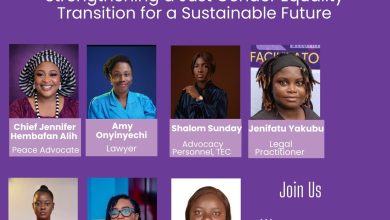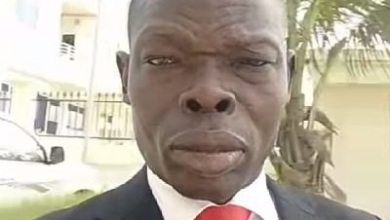
|
Getting your Trinity Audio player ready...
|
In an X (formerly Twitter) space held on Friday, Dec. 6, 2024, Afrotada brought together feminists and advocates to discuss online-facilitated gender-based violence (GBV) as part of the ongoing 16 Days of Activism against Gender-Based Violence. The event featured Simbiat Bakare, a journalist and founding director of Naija Feminists Media, and Oluwafunmbi Ogunsola, a feminist writer, as panellists who dissected the systemic and technological factors fueling male violence against women online and proposed survivor-centred solutions.
Simbiat, drawing from over a decade of experience in journalism, highlighted how intersecting systemic issues, such as cultural norms and economic inequality, create an environment that perpetuates male violence against women online.
“All of them contribute to male violence against women,” she stated. “Systemically, women are more susceptible to abuse online. Culturally, women aren’t even allowed to speak. In countries like Afghanistan, this is taken further, but the issue exists worldwide.” She pointed to the recent online bullying of Nigerian content creator Hauwa Lawal as a glaring example of these systemic failures.
Oluwafunmbi echoed Simbiat’s views, asserting that cultural norms play the most significant role. “There’s no amount of laws or economic equality that won’t still be affected by a culture that sees women as inferior,” she explained. “Culture is people, and people are the culture. Revenge porn, for instance, wasn’t common in Nigeria but has been introduced through exposure to online culture from other parts of the world.” She also stressed the link between offline and online violence, both of which are deeply rooted in patriarchal cultural norms.
The conversation also explored how digital platforms contribute to the problem. Simbiat lamented how social media, despite its benefits, has amplified opportunities for misogyny. “I didn’t truly realise the extent of the problem until I joined Twitter,” she said. “Misogyny and sexism are not crimes on most platforms, and free speech often enables bullying against women.” However, she highlighted the potential for these same platforms to be used as tools for advocacy and connection, citing the X Space itself as an example of positive engagement.
Oluwafunmbi added that technological features such as anonymity exacerbate online GBV.
“People hide behind burner accounts to bully others, often with no repercussions. I’ve personally received rape threats from anonymous accounts,” she shared. She also pointed out how the quest for virality and the proliferation of non-consensual videos online further fuel the problem, particularly targeting women and girls.
Both panellists stressed the importance of centring survivors ‘ voices and challenging harmful narratives when asked how institutions and individuals can better support survivors. Simbiat advocated for media accountability, urging journalists to avoid using terms like “allegedly” when reporting survivors’ stories. “We need to tell these stories from the perspective of believing the survivor,” she said. “Let’s stop advising women to change their lives, dress differently, or be submissive to avoid being raped. The onus is not on women to prevent violence.”
Oluwafunmbi added that survivors and victims should be included in decision-making processes and called for the creation of confidential reporting mechanisms that prioritise action. “There’s a way to report things that trigger action, but in Nigeria, we often don’t do that,” she said. She also emphasised the need for institutions to adopt survivor-centered approaches in policy-making and advocacy.






